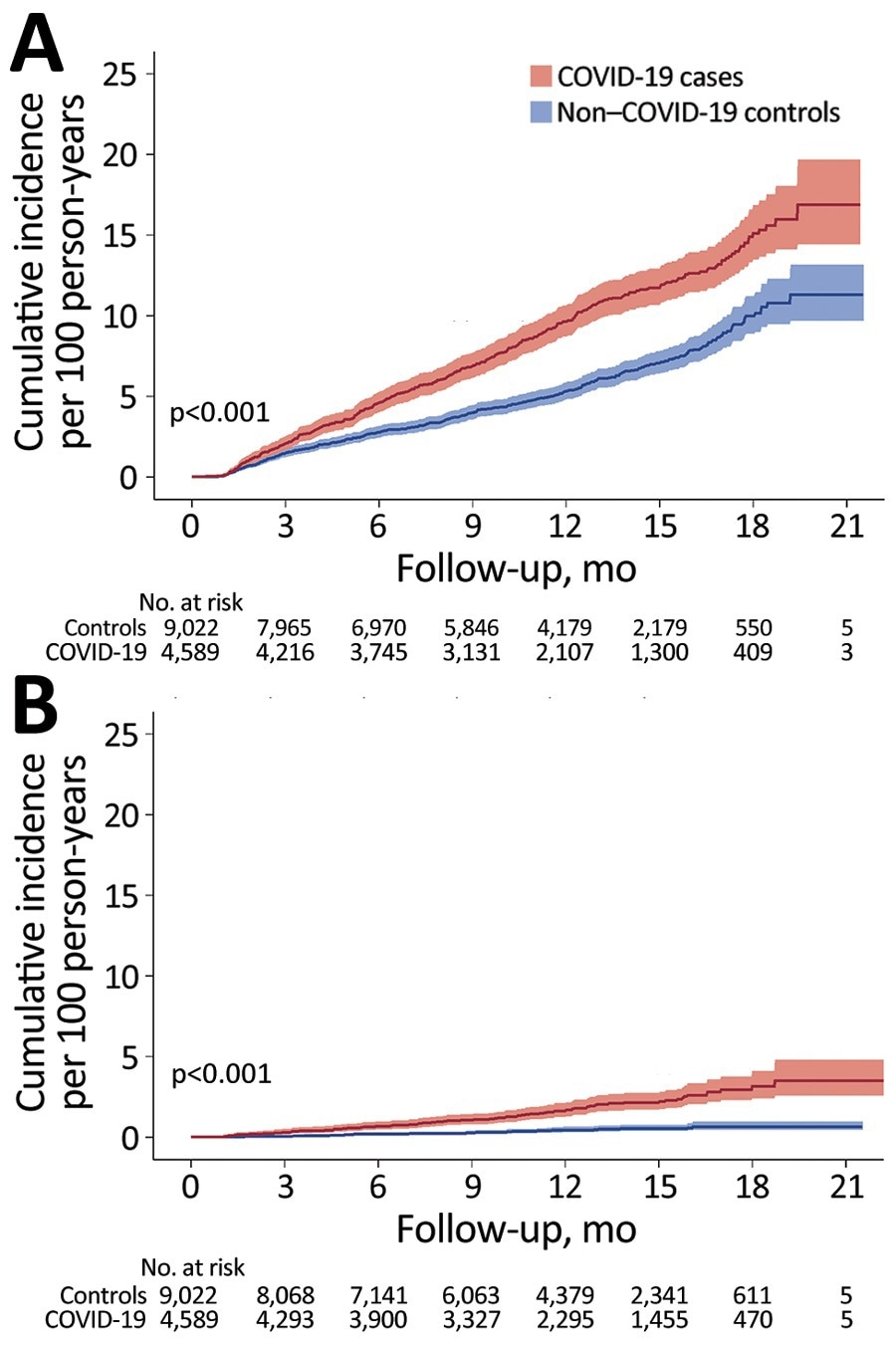Scientists at the US Centers for Disease Control and Prevention (CDC) and Washington University have conducted a study to estimate the incidence rate and predictors of fatigue after severe acute respiratory syndrome coronavirus 2 (SARS-CoV-2) infection.
Coronavirus disease 2019 (COVID-19) caused by SARS-CoV-2 is a multifactorial disease characterized by a range of mild-to-severe respiratory, cardiovascular, digestive, and neuropsychological symptoms. The disease is also associated with long-term consequences, commonly known as long-COVID.
A CDC-conducted survey in January 2023 has shown that up to 15% of US adults experience long-COVID symptoms and that fatigue is the most commonly reported symptom by both hospitalized and non-hospitalized patients. Another recent study has identified fatigue as a common symptom among 85% of patients with long-COVID.
Post-COVID fatigue demonstrates many similarities with an illness called myalgic encephalomyelitis/chronic fatigue syndrome, which is an unexplained syndrome characterized by functional limitations that impair the daily life activities of patients.
In this study, scientists have estimated incidence rates of fatigue and chronic fatigue in patients with and without COVID-19 and determined the factors associated incident fatigue.
Study design
The study was conducted on 4,589 adult patients with confirmed COVID-19 diagnoses between February 2020 and February 2021. A total of 9,022 patients without a COVID-19 diagnosis during the same period were included as controls.
Electronic health records of the patients were collected from three US hospitals and more than 300 primary care and specialty clinics and analyzed to estimate the incidence rates of post–COVID-19 fatigue and chronic fatigue and to quantify the additional incident fatigue caused by COVID-19.
The mean follow-up periods were 11.4 months for COVID-19 patients and 11.5 months for controls. The follow-up time was calculated as the duration between the first COVID-19 diagnosis and the detection of the first incident event (fatigue) for patients with an event. For patients without an event, the follow-up time referred to the duration between the first COVID-19 diagnosis and the last follow-up date.
Incidence of fatigue
The study estimated that about 9.5% of COVID-19 patients included in the study had incident fatigue during the study follow-up period. This gave rise to an incidence rate of 10.2/100 person-years.
Regarding factors associated with incident fatigue, the study found that the incidence rate increases with advancing age and is higher among women than men. A comparatively lower incidence rate was also observed among patients without comorbidities and among patients who were not hospitalized for acute COVID-19.
Considering patients without COVID-19 (controls), the incidence rate was estimated to be 6.0/100 person-years. This indicated that the risk of incident fatigue is 68% higher among COVID-19 patients compared to that among controls.
Incidence of chronic fatigue
According to the study estimations, the incidence rates of chronic fatigue among COVID-19 patients and non-COVID-19 patients were 1.82/100 person-years and 0.42/100 person-years, respectively.
Similar to fatigue, the risk of developing chronic fatigue was significantly higher among COVID-19 patients compared to that among non-COVID-19 patients. The difference in chronic fatigue incidence rate between COVID-19 patients and controls continued to increase even after 12 months of disease diagnosis.

Cumulative incidence of fatigue (A) and chronic fatigue (B) among 4,589 COVID-19 cases and 9,022 non–COVID-19 controls in study of fatiguing illness after SARS-CoV-2 infection, Washington, USA, February 2020–February 2021. Shading around data lines indicates 95% CIs.
Factors associated with incident fatigue
The analysis conducted after adjusting for age and comorbidities revealed that women are 39% more likely to develop incident fatigue than men. After adjusting for sex and comorbidities, a non-significantly higher risk of incident fatigue was observed for older adults compared to that for young adults (18 – 29 years).
Patients with comorbidities showed a significantly higher risk of incident fatigue than those without comorbidities. Among 36 diseases that were diagnosed 18 months before COVID-19, 21 showed significant associations with incident fatigue after adjusting for age, sex, and number of comorbidities. Specifically, patients with hypertension, gastritis, and duodenitis showed 27% and 93% higher risks of incident fatigue, respectively.
Regarding clinical outcomes, the study found that about 25.6% of COVID-19 patients with incident fatigue were hospitalized more than once during the post-acute period. In contrast, only 13.6% of patients without incident fatigue were hospitalized during the post-acute period. Moreover, patients with fatigue showed a significantly higher risk of death compared to those without fatigue.
Study significance
The study finds that COVID-19 is associated with a significantly higher risk of developing fatigue and that patients with incident fatigue have far worse clinical outcomes than those without fatigue.
The high incidence rate of post-COVID-19 fatigue observed in the study highlights the need for public health actions to control SARS-CoV-2 infection and to develop effective treatments for post-COVID-19 fatigue.